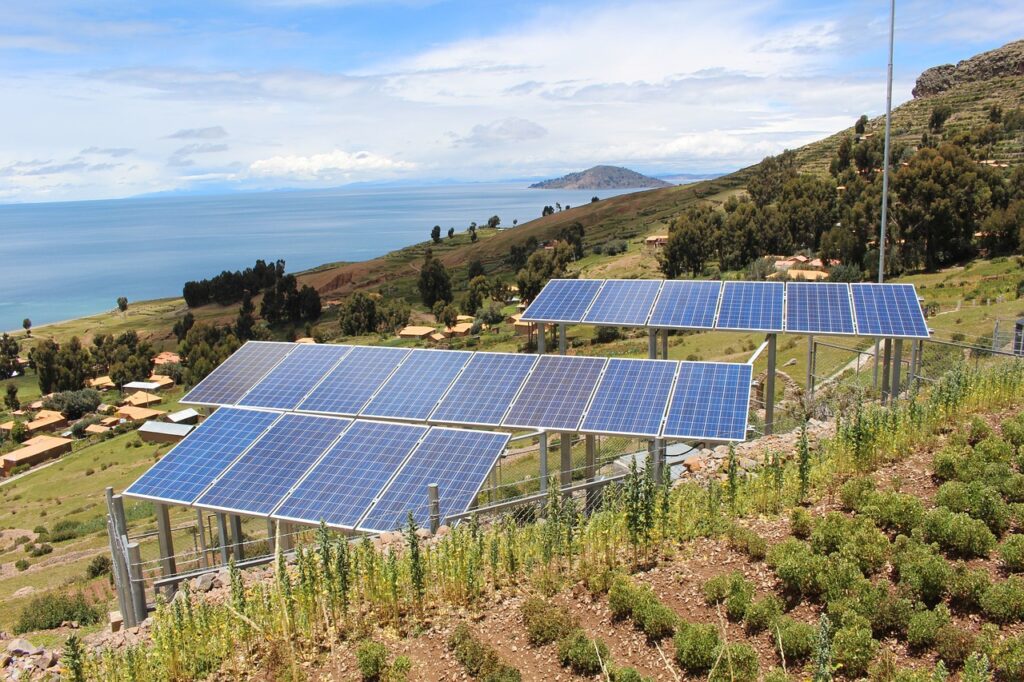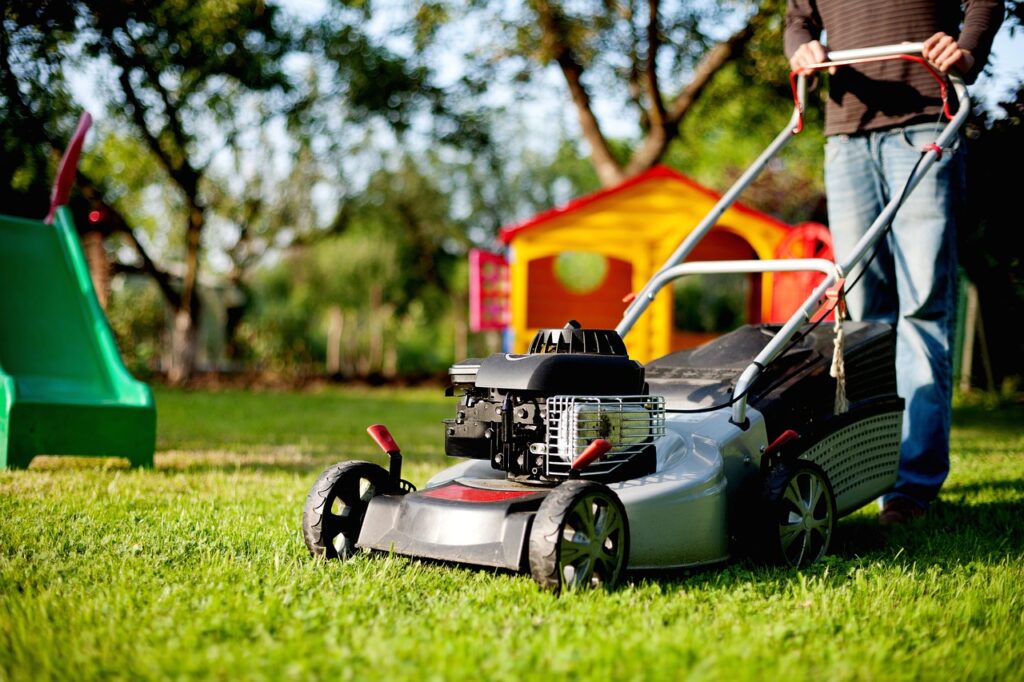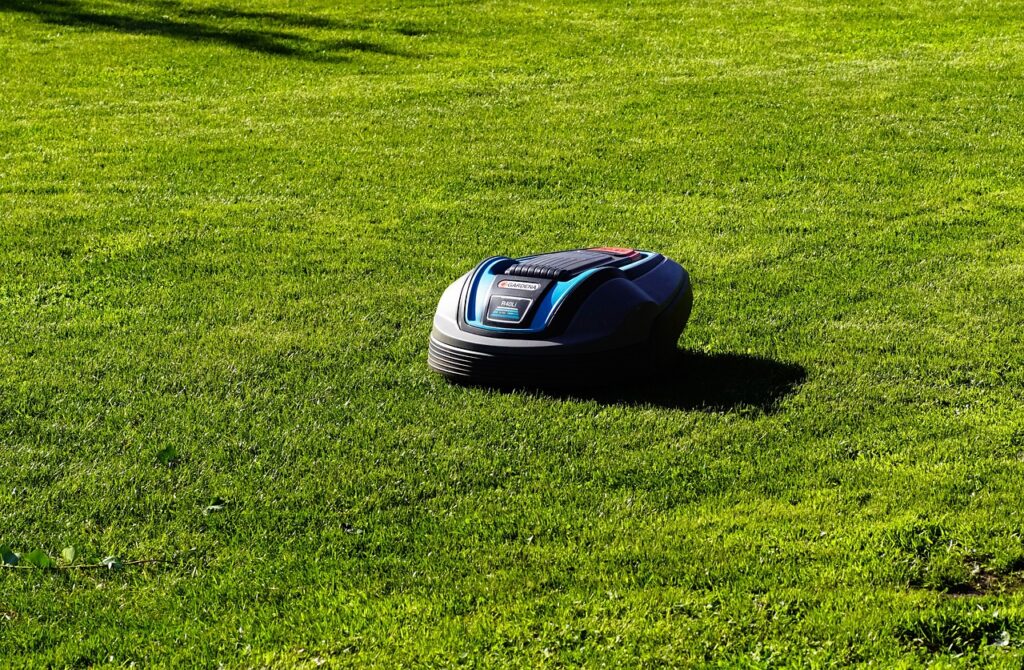Large landscapes, including solar farms, parks, airports, and industrial facilities, face distinct challenges when it comes to maintaining expansive grassy areas. Traditional lawn care methods, though effective, can be labor-intensive, time-consuming, and costly. In response to these challenges, remote-controlled lawn mowers have emerged as a transformative solution, particularly in solar farms where consistent lawn maintenance is crucial for optimizing energy output. This paper examines the role of RCLMs in revolutionizing landscape management, highlighting their potential to save time, cut costs, and boost operational efficiency. We will review operational data, present real-world case studies, and offer a theoretical framework to underscore the growing significance of RCLMs in the maintenance of large-scale landscapes.

An Introduction to Remote-Controlled Lawn Mowers for Grass Cutting
Large-scale landscapes, including solar farms, demand regular and efficient lawn care to maintain both functionality and visual appeal. In solar farms, it is essential to keep grass and vegetation trimmed to prevent shading of solar panels, as overgrowth can dramatically reduce energy production. Traditional lawn mowing methods, which rely on manual labor, fuel, and time, are gradually being replaced by remote-controlled lawn mowers, offering improved efficiency and cost-effectiveness.
This paper explores the technological, environmental, and economic advantages of remote control lawn mowers for large landscapes and solar farms, supported by real-world data and theoretical models.
How Remote Control Lawn Mowers Improve Efficiency on Solar Farms
Solar farms are often vast and feature uneven terrain, posing challenges for traditional lawn mowers. Remote-controlled lawn mowers can easily navigate these landscapes, handling slopes of up to 45 degrees and reaching areas where manual mowers struggle. Equipped with GPS guidance systems, Remote control lawn mowers can be programmed for precise mowing, ensuring that no areas are missed and eliminating the risk of overlapping.
A study by CleanTech Solutions (2022) revealed that remote-controlled lawn mowers reduced the time required to mow a 50-acre solar farm by 40% compared to traditional mowers. This improvement is due to the autonomous operation of RCLMs, which can mow continuously without requiring operator breaks, leading to significant gains in overall efficiency.
Optimizing Solar Energy Output
Untrimmed vegetation poses a major challenge for solar farms, as even minimal shading on solar panels can lead to a 20-30% reduction in energy output. To address this issue, solar farm operators are increasingly turning to Remote-Controlled Lawn Mowers for routine maintenance. By using remote control lawn mowers, they ensure that panels are consistently cleared of any obstructing vegetation, allowing for optimal sunlight exposure and improved energy efficiency.
For example, the Green Valley Solar Farm reported a 15% increase in annual energy production after adopting remote-controlled mowers. This boost was attributed to the regular and efficient removal of shading vegetation, which helped maximize the farm’s solar energy generation.
Benefits of Remote Control Lawn Mowers for Expansive Landscapes
Reducing Labor Costs with Remote-Controlled Lawn Mowers
Maintaining vast areas like parks, airports, and industrial sites typically demands a large workforce when using traditional mowing methods. However, Remote-Controlled Lawn Mowers significantly cut down on labor requirements, allowing a single operator to manage multiple units simultaneously.
A report from Landscape Business Magazine (2023) revealed that companies implementing RCLMs saw labor cost reductions of up to 35%. This is especially advantageous for large landscapes, where a smaller team can efficiently maintain expansive areas.
Reducing Fuel and Maintenance Costs with Remote-Controlled Lawn Mowers
Traditional mowers, especially ride-on models, consume large amounts of fuel. In contrast, many remote-controlled lawn mowers are electric, providing a more sustainable option with much lower fuel consumption and reduced maintenance requirements. Additionally, electric remote control lawn mowers have fewer moving parts, which decreases the chances of mechanical failure.
Operator Safety and Comfort in Lawn Mowing
Traditional lawn mowing can pose significant hazards, especially when navigating slopes or rough terrain. Remote-controlled lawn mowers can be operated remotely, removing the need for workers to enter potentially dangerous areas. This is particularly beneficial for solar farms or parks with steep inclines.
The Safety Report on Landscaping Equipment (2021) found that remote-control technology reduced workplace injuries by 60% compared to traditional mowing methods. Fewer injuries lead to lower insurance claims and contribute to a safer working environment for landscaping companies.
Energy Efficiency and Environmental Advantages
Energy Savings
Electric remote-controlled lawn mowers use considerably less energy than gas-powered models, resulting in lower operational costs. As environmental regulations tighten, especially for large industries and government-managed landscapes, transitioning to electric remote control lawn mower supports sustainability objectives.
A report by the Environmental Law Center (2023) found that adopting electric remote control lawn mowers led to a 35% reduction in greenhouse gas emissions in large-scale operations. This decrease in energy consumption helps organizations meet emissions standards while maintaining high operational efficiency.
Eco-Friendly and Quiet Mower for Sustainable Lawn Care
Traditional lawn mowers are a significant source of noise pollution, especially in public parks and residential areas, where they can disrupt the peace. In contrast, remote control mowers, particularly electric models, produce much less noise, helping to mitigate sound pollution. This quieter operation is especially important for managing expansive green spaces in urban settings.
According to a study by Urban Green Initiatives (2022), electric remote-controlled lawn mowers generate noise levels that are 50% lower than their traditional counterparts. This makes them an excellent choice for use in noise-sensitive environments such as parks, schools, and residential neighborhoods.
Conclusion
Remote-controlled lawn mowers are transforming the management of solar farms and large landscapes. By cutting labor costs, enhancing energy efficiency, and reducing fuel and maintenance expenses, remote control lawn mowers provide an effective solution for maintaining expansive, challenging terrains. Their environmental benefits, combined with improved safety and productivity, position them as a vital innovation in both the landscaping and renewable energy sectors.
As solar farms and large landscapes continue to expand, remote control lawn mowers will be crucial in keeping these spaces well-maintained, sustainable, and cost-effective.



